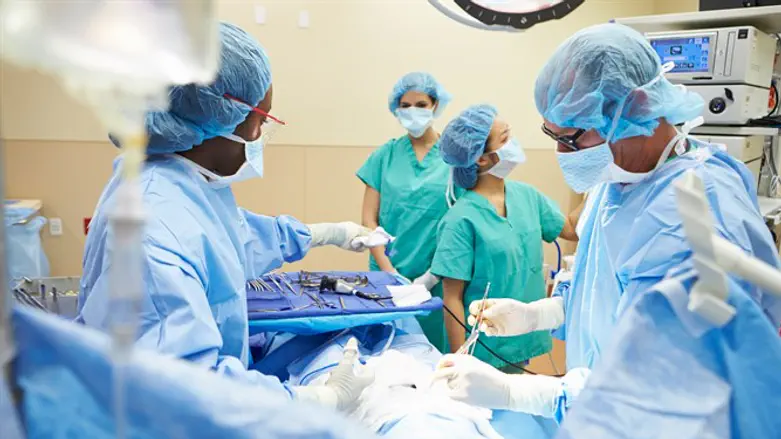
The number of Israelis donating kidneys reached an all-time high in 2019, with 248 volunteer donors, up from 231 in 218 and 222 in 2016-2017, statistics from the Health Ministry's ADI - National Transplant Center show.
Prior to 2009, only 69 kidney transplants had been performed.
The ADI statistics also showed that a total of 575 organ transplants were performed in 2019, 315 from a living donor and 143 from deceased donors. Donations from deceased donors included 143 kidney transplants, 76 liver transplants, 21 heart transplants, and 52 lung transplants.
Israel Hayom noted that as of January 2020, 1,153 people are waiting for an organ transplant, and in 2019, 59 people died while waiting for a transplant. Most of these are waiting for kidney transplants (857), while another 124 are waiting for lung transplants, 86 are waiting for liver transplants, and 71 are waiting for heart transplants.
In addition, in 2019, Israel began a joint program with the Czech Republic to allow couples in which one partner wishes to donate to the other partner or to another family member but was not found to be a match for that person to search for another couple who were searching for the same. A total of 29 Israelis - 15 women and 14 men, aged 31-71 - donated kidneys through this program. In nine of the cases, a woman donated a kidney to her husband, in three cases the husband donated to his wife, in three cases a child donated to his or her parent, and in one case a parent donated to his or her child. Another two cases were between friends, and the last eleven were altruistic donations in which the donors had agreed to join the program. Receipients included 19 men and 20 women, between the ages of 5 and 72.
Israel Hayom quoted Professor Rafi Beyar, Chairman of ADI - National Transplant Center's Steering Committee, as saying: "The integration plan expands the options for finding a match between family members who are not matches for each other, and thus advances the transplant. What's special about this program is that couples can join even if the ill partner has not yet started dialysis - something that is impossible for those on the waiting list for transplants from deceased donors."